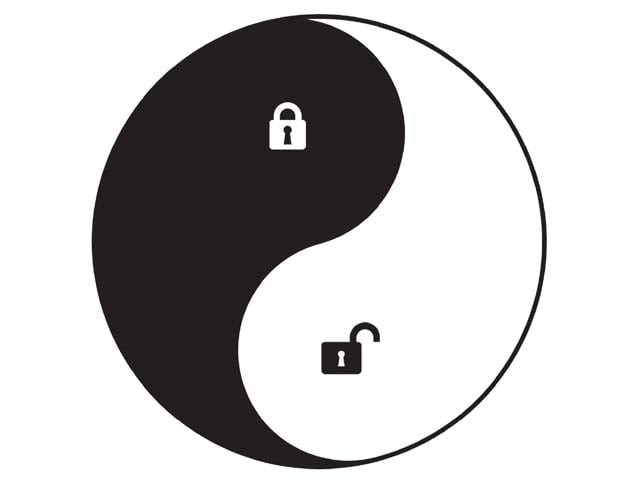Security check: Experts say we need to look at women more carefully
Security measures extremely lax in Karachi, especially when it comes to females.

There is no checking on the long staircase that leads up to the shrine and women selling garlands harangue visitors at the entrance. The security at the shrine is managed by the local police as well as employees of the Auqaf department.
Inside the shrine, security measures do not appear to have been heightened either - especially for women. After going through a scanner, female security personnel merely peer into a handbag to give a half-hearted look at its contents and wave the person on ahead.
It’s the same everywhere - malls or government offices. Women are given a cursory once-over and their handbags are rarely opened. At Jinnah International Airport, security personnel often do not question women driving into the airport. It is only at the Karachi airport that the security personnel check vehicles only and people who are walking in have no difficulty getting where they want and with what they want.
However, at high-risk occasions such as the main Ashura procession in Karachi, female personnel conduct thorough checks of women and their belongings.
The issue of women being tasked to carry out suicide attacks has come to light recently. A female suicide bomber attacked a World Food Programme distribution point in Khar, Bajaur Agency last December, killing 47 people. In a raid in Bajaur Agency earlier this month, a would-be female suicide bomber and two other women were arrested. In 2007, a woman was reportedly involved in a suicide attack in Peshawar.
According to the Karachi police, there are about 300 female police officers in the city who are deployed at public spaces if needed.
CCPO Karachi Fayyaz Laghari says that the possibility of women being involved is definitely a concern for the police and it has been acting on this. “For events such as Ashura, Chehlum or Eid-e-Milad-un-Nabi, we gear up the female police and we also ask permit holders for these events to train female volunteers for checking. You can also see the deployment of female security personnel at public places such as Abdullah Shah Ghazi’s shrine, for example,” he said. According to Laghari, male and female police officers are fully aware that they have to check individuals of both genders thoroughly.
“The people in charge of countering security hazards only lock the barn door after the barn has burned down,” said security expert Ikram Sehgal. “The idea is to not build up a walled fortress but to have proper deterrents.” He said that women do a far better job in checking. “They’re more conscientious, hard-working and do a thorough job.”
Amir Rana, the director of the Pakistan Institute for Peace Studies, said the threat has not been taken seriously because the involvement of women is still doubtful. “The al Qaeda factions or Taliban groups have not yet announced using female suicide bombers as a strategy,” he told The Express Tribune. “There are also questions about whether they have the capacity to do this.”
Rana said that it was likely that recruitment, if any, of female suicide bombers would have been done from the area of Swat.
“Women are ideologically more motivated than men,” Sehgal said. “Men are persuaded by the idea of virgins in heaven but women don’t have those [persuasions], so they have stronger convictions.”
“In our culture, where women can only be checked by other women, it is extremely important to have female personnel. But look at how long it took Pakistan to have female parliamentarians. It is a terrible mindset that dissuades the government from taking this issue seriously.”
Sehgal believes it is imperative to have female security personnel at any building visited by both men and women and at rallies that have a large number of women participating.
He points to Lal Masjid as an example of the need. “Remember those images of women dressed in burqas wielding sticks? They couldn’t be controlled or stopped because there were only men [in the law-enforcement agencies] who would not touch them.”
Published in The Express Tribune, February 21st, 2011.



















COMMENTS
Comments are moderated and generally will be posted if they are on-topic and not abusive.
For more information, please see our Comments FAQ